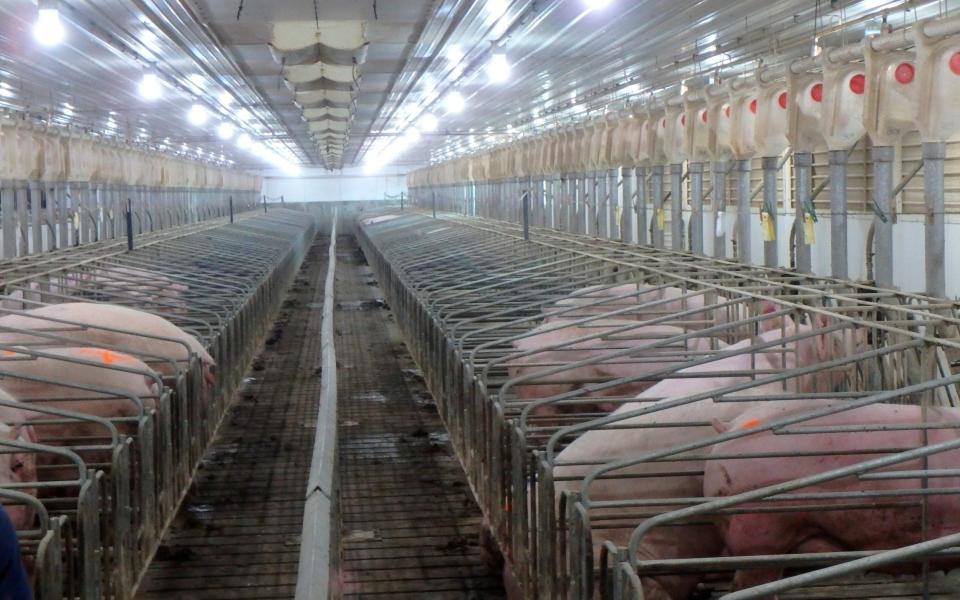Save our bacon, plead Californian diners, as new law threatens the great American breakfast

Bacon and other pork items could disappear from restaurants and supermarkets in California next year, when the state begins enforcing tougher animal welfare standards.
The stricter standards include requiring farmers to provide more space for breeding pigs, egg-laying chickens and veal calves as part of an animal welfare proposition that was approved overwhelmingly by voters in 2018.
California said it would begin enforcing the rule at the beginning of 2022 following a number of failed legal challenges.
America's veal and egg producers say they are "optimistic" they can meet the requirements - but just four per cent of pig operations comply with the new rules.
As things stand - with limited time left to accommodate the changes, inseminate sows and process the offspring by January - California will lose almost all of its pork supply.

Matt Sutton, from the California Restaurant Association, said businesses were "very concerned about the potential supply impacts and therefore cost increases".
California's restaurants and groceries use about 255 million pounds of pork a month, but its farms produce only 45 million pounds, according to Rabobank, a global food and agriculture financial services company.
Opponents of the proposition estimate that if half of California's pork supply was suddenly lost, bacon prices would jump 60 per cent, meaning a $6 package would rise to about $9.60.
The nation's pig farmers, many of whom are in Iowa, say they have not complied with the requirements because of the crippling costs involved, and because California has not yet issued formal regulations on how the new standards will be enforced.
The California Department of Food and Agriculture said that while the detailed regulations were not finished, the key rules about space requirements for animals had been known for years.
“It is important to note that the law itself cannot be changed by regulations and the law has been in place since the Farm Animal Confinement Proposition (Prop 12) passed by a wide margin in 2018,” the agency said.
The pork industry has filed lawsuits but so far courts have supported the California law.
The National Pork Producers Council and a coalition of businesses have also asked Gavin Newsom, California's governor, to delay the new requirements.
The council also is holding out hope that meat already in the supply chain could be sold, potentially delaying shortages.
However, the changes are expected to cause pork prices in California to soar, in a rare case of consumers paying a price for their beliefs.
Analysts predict that while customers elsewhere in the country will see little difference, California's tougher requirements could eventually become the national standard, since processors cannot afford to ignore one of the country's largest markets.

 Yahoo News
Yahoo News 
